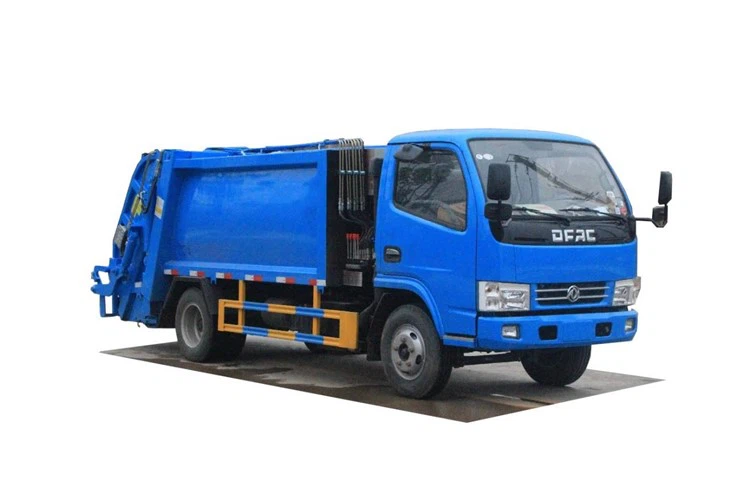Volvo Truck TCS: Understanding the Technology for Enhanced Performance

Introduction to Volvo Truck TCS
Volvo trucks are synonymous with reliability, safety, and cutting-edge technology. One of the essential features that enhance the performance of these vehicles is the Traction Control System (TCS). This system plays a crucial role in maintaining vehicle stability, especially under challenging driving conditions. In this article, we will explore the functionalities, benefits, and operational mechanisms of the Volvo Truck TCS, providing you with a comprehensive understanding of its importance in modern trucking.
What is Traction Control System (TCS)?
The Traction Control System (TCS) is a safety system designed to prevent wheelspin during acceleration by controlling the amount of power delivered to the wheels. It uses sensors to monitor the speed of the wheels and applies brakes or reduces engine power when it detects that wheelspin is occurring.
How TCS Works
The TCS works in conjunction with the Anti-lock Braking System (ABS). When the system detects that one or more wheels are losing traction, it intervenes in one of the following ways:
- Applying the brakes to the spinning wheel(s).
- Reducing engine power to limit acceleration.
This ensures that the truck remains stable and maintains traction, particularly in slippery conditions such as rain, snow, or mud.
Key Components of TCS
| Component | Description |
|---|---|
| Sensors | Monitor wheel speeds and determine when wheelspin occurs. |
| Control Module | Processes data from sensors and decides when to activate TCS. |
| Brake System | Applies braking force to the spinning wheels. |
| Engine Management System | Adjusts engine power output to prevent wheelspin. |
Benefits of Volvo Truck TCS
The implementation of TCS in Volvo trucks brings numerous advantages:
Improved Stability
The primary benefit of TCS is improved vehicle stability. By preventing wheelspin, the system helps maintain grip, particularly on slippery surfaces.
Enhanced Safety
TCS significantly enhances the safety of both the driver and the cargo. It helps avoid skidding and losing control, which can lead to accidents.
Extended Tire Life
By managing wheelspin, TCS can also contribute to extending the life of tires, as it ensures even wear and reduces excessive slipping.
Greater Driver Confidence

With TCS, drivers can feel more confident when operating the vehicle in adverse conditions, knowing that the system is working to keep them safe.
Common Applications of TCS in Volvo Trucks
Volvo’s Traction Control System is used in various models and applications within the commercial trucking industry. Here are some examples:
Long-Distance Hauling
For long-haul trucking, where different road conditions are encountered, TCS becomes invaluable in maintaining traction and stability over miles of travel.
Construction and Off-Road Applications
In construction sites or off-road scenarios, where traction can be compromised, TCS ensures that Volvo trucks remain operable and effective.
Emergency Services
Volvo trucks in emergency services benefit from TCS as it allows for swift response without losing control in challenging driving conditions.
Practical Examples of TCS in Action
Example 1: Driving on Icy Roads
While driving on an icy road, a driver accelerates quickly. The TCS detects that the rear wheels are spinning faster than the front wheels and automatically applies the brakes to the spinning wheels. This prevents the truck from skidding sideways, ensuring the driver can maintain control.
Example 2: Off-Road Conditions
In an off-road scenario with mud and loose gravel, a Volvo truck hits a patch of slippery ground. The TCS kicks in, reducing engine power and applying the brakes to prevent the wheels from spinning excessively. This allows the truck to regain traction and continue moving forward efficiently.
How to Ensure TCS is Functioning Properly?
To ensure that the Traction Control System in your Volvo truck is functioning optimally, consider the following tips:
Regular Maintenance Checks
Schedule regular maintenance checks with your certified Volvo service technician. They can inspect and ensure that all components of the TCS are working correctly.
Monitor Warning Lights
Pay attention to any warning lights on the dashboard related to the traction control system. If the TCS light appears, it may indicate a malfunction that requires immediate attention.
Check Wheel Alignment and Tire Condition
Proper wheel alignment and tire condition are vital for TCS effectiveness. Ensure that tires are adequately inflated and show no signs of excessive wear.
Challenges and Limitations of TCS
While TCS is highly beneficial, it is essential to acknowledge its limitations:
Not a Substitute for Safe Driving
TCS does not substitute for safe driving practices. Drivers still need to exercise caution and use appropriate speeds for road conditions.
Potential for False Activation

In some situations, TCS may activate unnecessarily, such as during aggressive cornering. While this is usually harmless, it can be distracting for the driver.
Low Traction Surfaces
On surfaces with extreme low traction, such as ice or heavy mud, TCS might not fully prevent wheelspin, and additional driving strategies may be necessary.
Future Developments in TCS Technology
As technology continues to evolve, so do safety systems like TCS in Volvo trucks. Some potential future developments include:
Integration with Autonomous Systems
Future iterations of TCS may integrate with autonomous driving systems, enhancing the overall safety and efficiency of the vehicle.
Advanced Analytics and Reporting
Enhanced analytics tools could provide real-time feedback to drivers about their driving patterns and TCS performance, allowing for better training and safer driving practices.
Volvo Truck TCS FAQs
What does TCS stand for in Volvo trucks?
TCS stands for Traction Control System, a feature designed to improve vehicle stability by preventing wheelspin during acceleration.
How does TCS differ from ABS?
While TCS prevents wheelspin during acceleration, ABS (Anti-lock Braking System) prevents wheel lock-up during braking. Both systems work together to enhance vehicle control.
Can TCS be turned off in Volvo trucks?
Yes, drivers have the option to deactivate TCS in certain situations, such as when extra wheel slip is necessary in off-road conditions. However, it is generally advisable to keep it activated for safety.
Does TCS affect fuel efficiency?

TCS itself does not significantly impact fuel efficiency, but it can prevent excessive wheelspin, which may save fuel over time by minimizing tire wear.
Is TCS standard in all Volvo trucks?
Most modern Volvo trucks come equipped with TCS as part of their standard safety features. However, it is advisable to confirm with the dealer or manufacturer regarding specific models.
